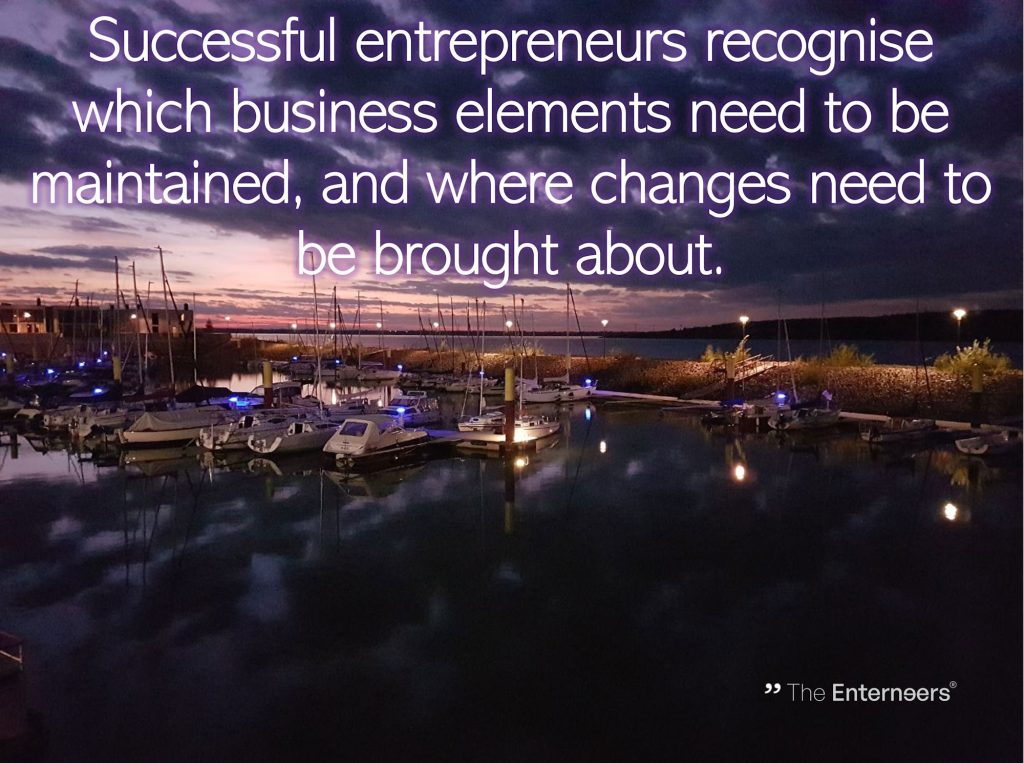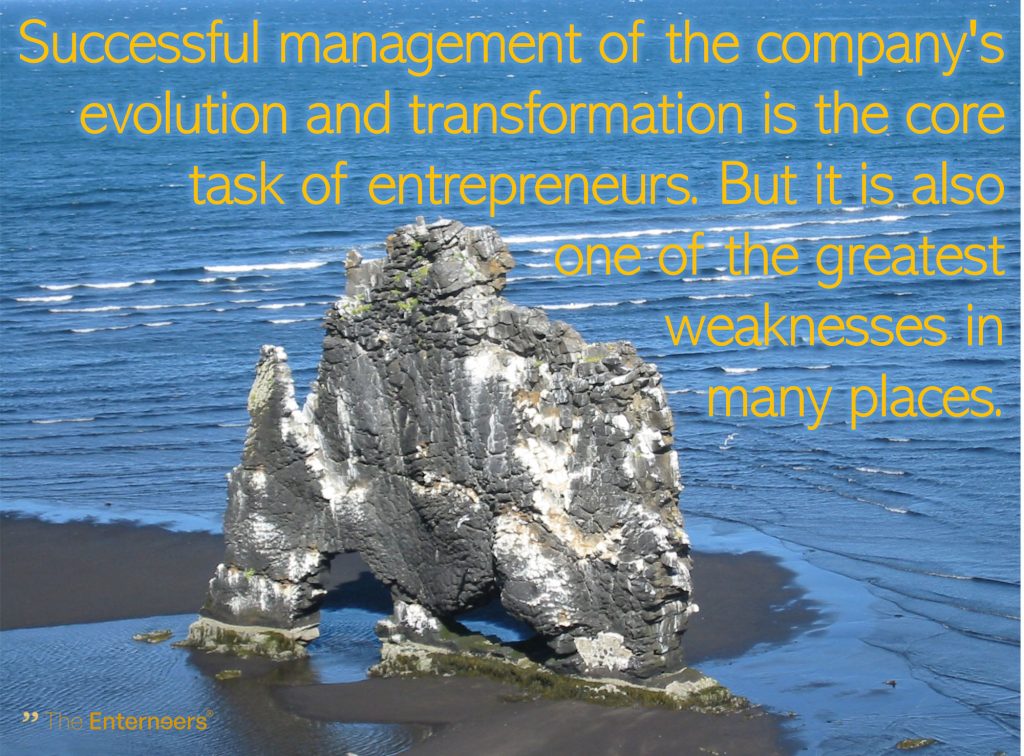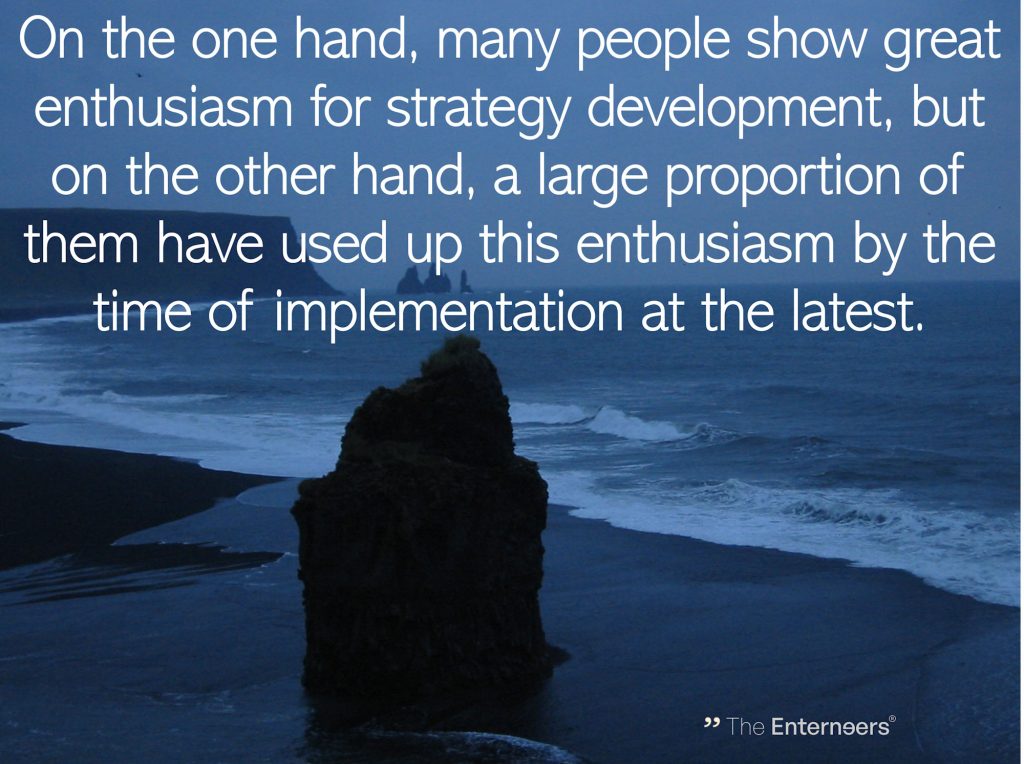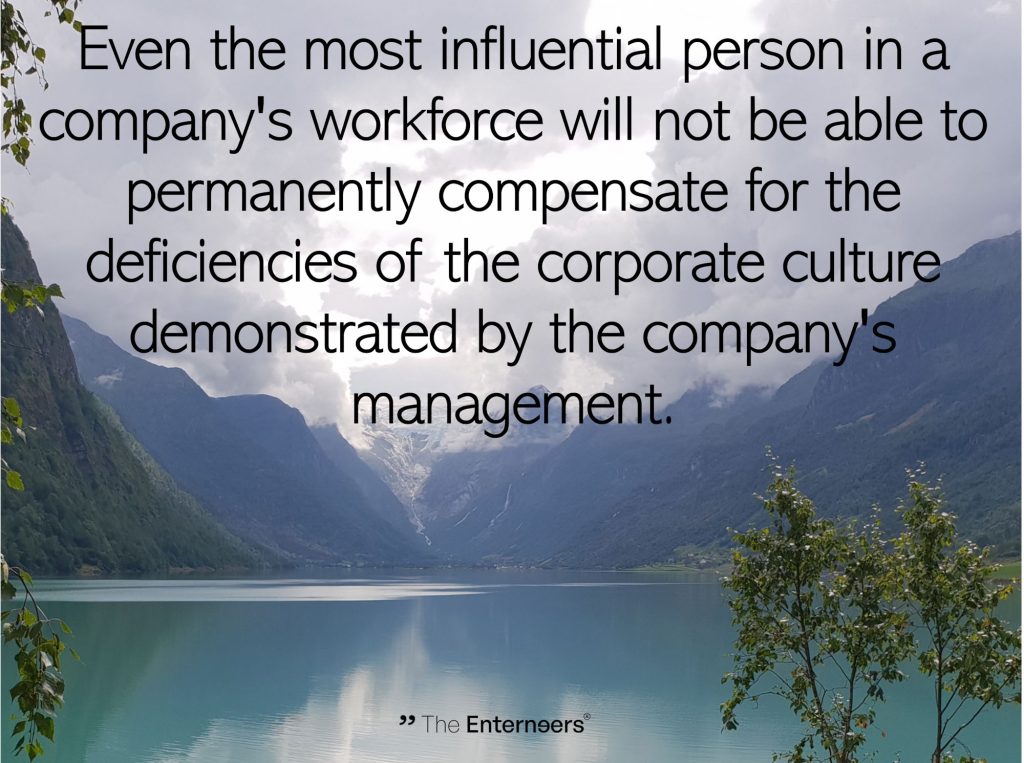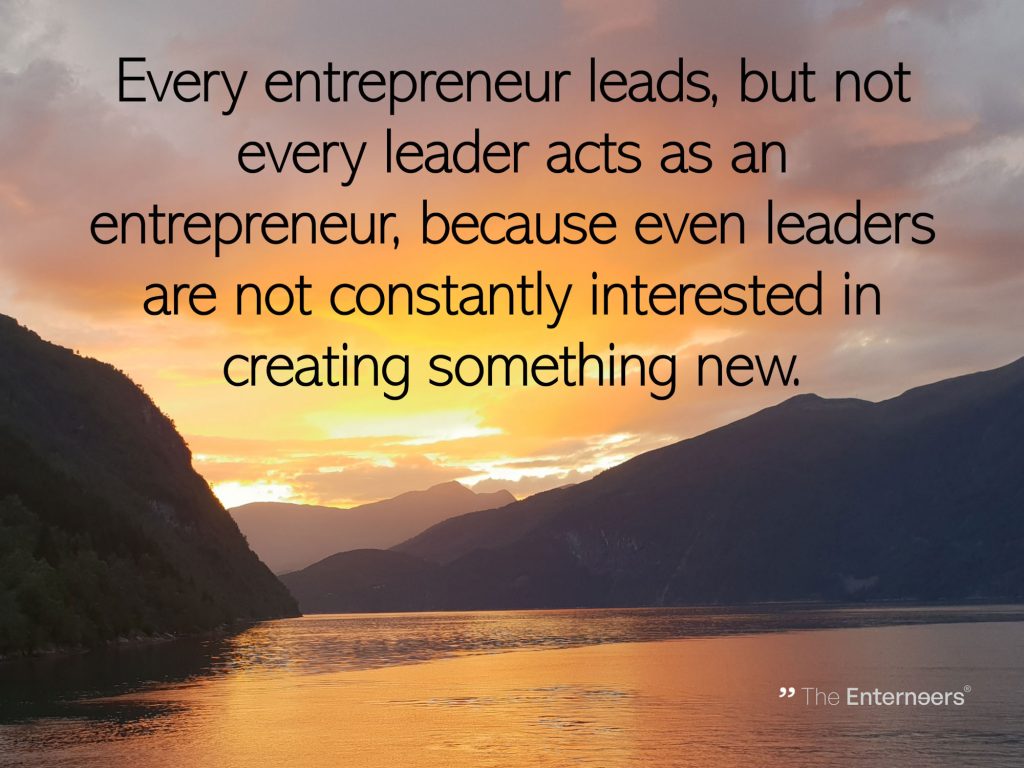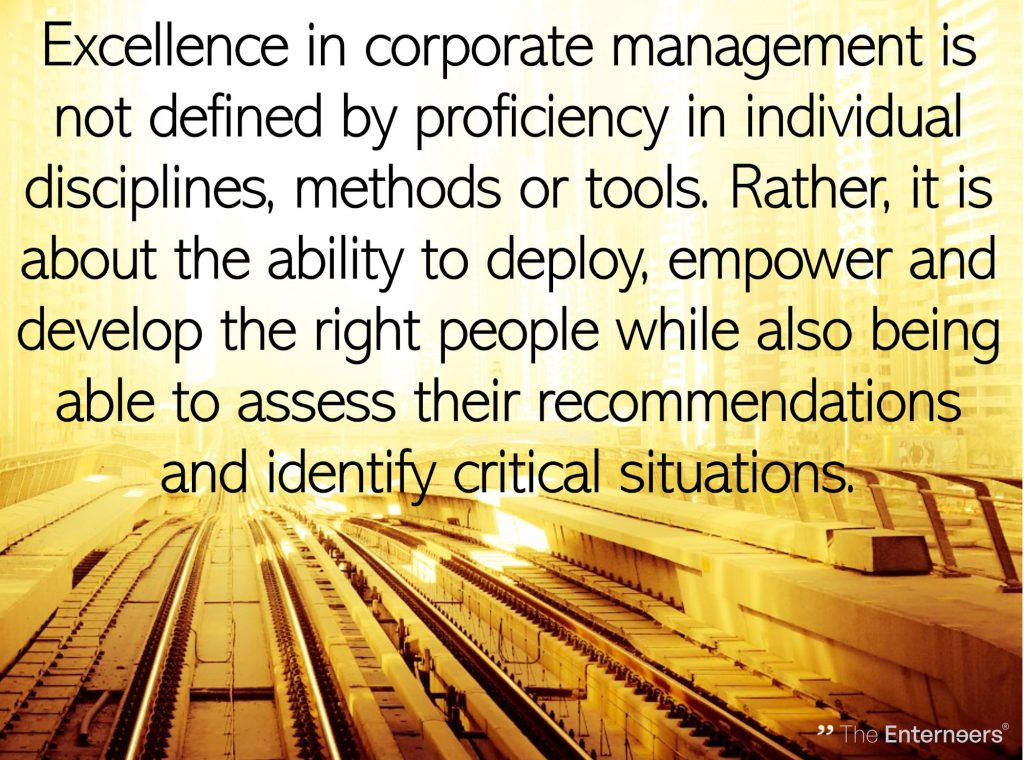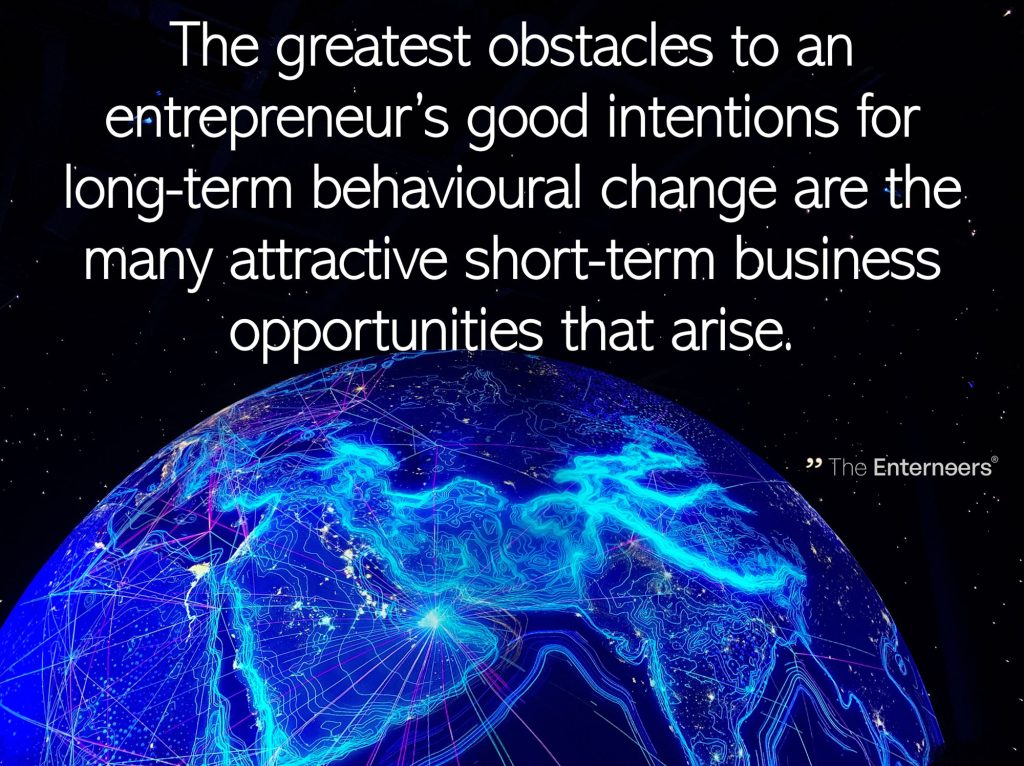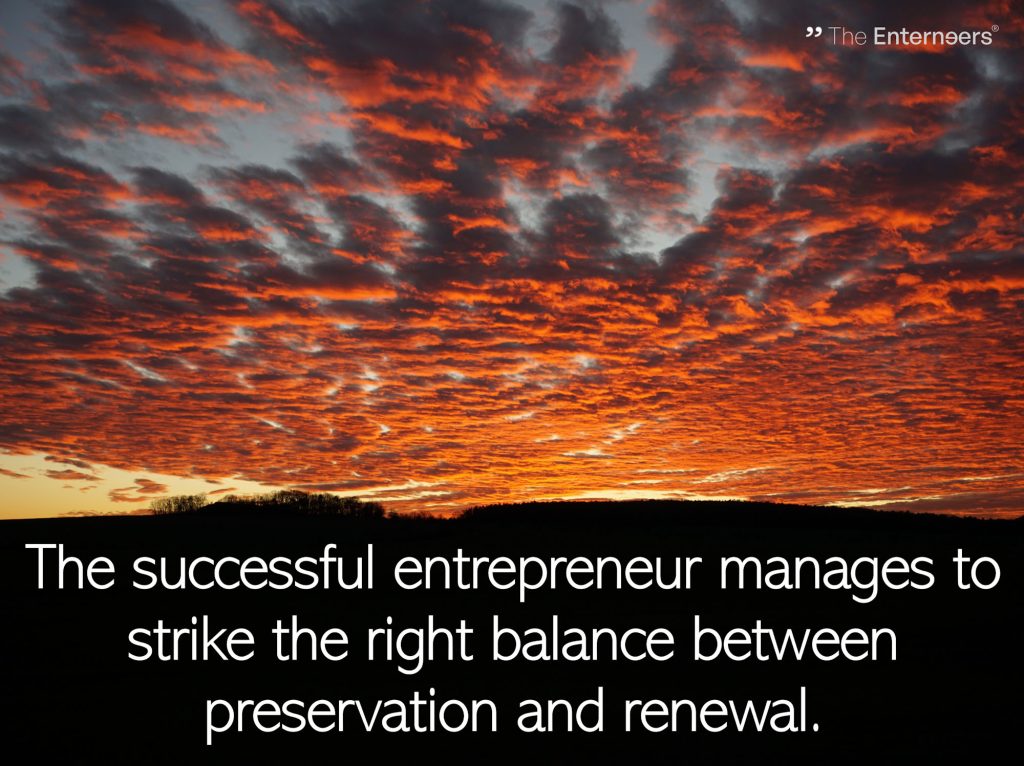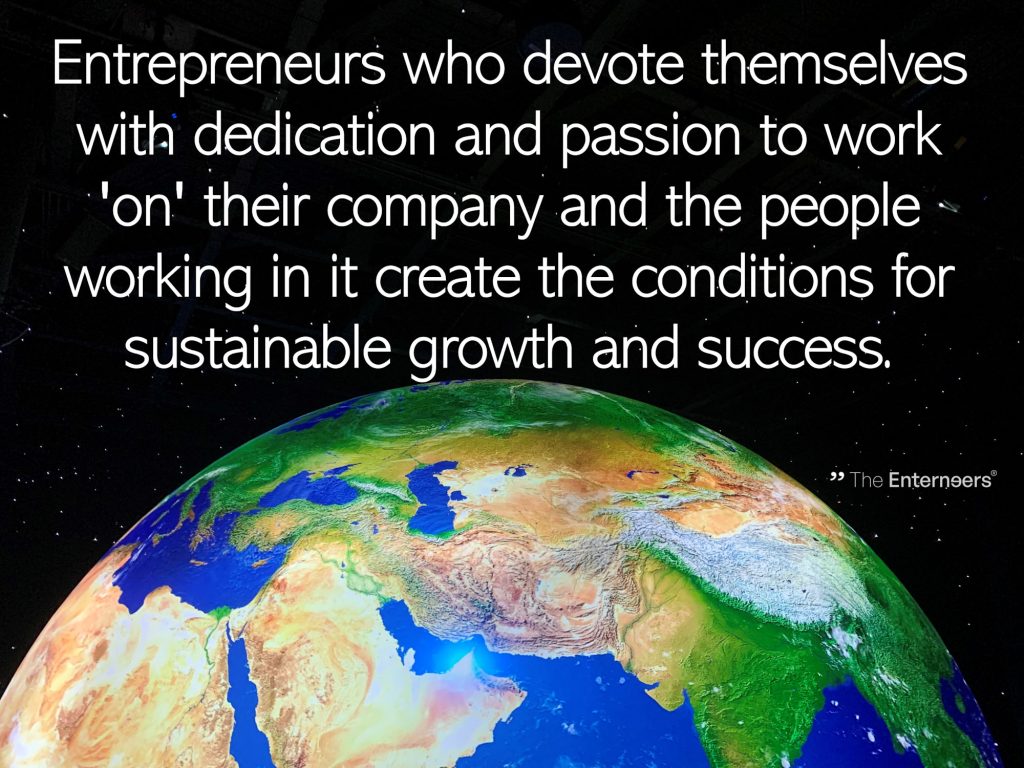

Entreprise Leadership 5.0
Building a company, growing it effectively and leading it successfully through evolution and transformation needs to be learned and trained. Bringing people and organisations to peak performance and manoeuvring them through change processes requires ambition, passion and special skills. The larger and more complex companies within the VUCA environment become, the more important the effective systemic enterprise leadership become.
The systemic approach understands the organisation as a complex and dynamic system. It focuses on developing interactions and relationships between all relevant elements of the system. The highly effective combination of human and performance-orientated development and leadership creates the best possible VUCA capabilities.
Enterneering® stands for targeted and structured systemic enterprise development and leadership. Entrepreneurs and executives need to be familiar with it to successfully navigate through the digital age.
of Success
of Empowerment
Ultimate Knowledge
Application worldwide
Understand the approach
Your Way
- Empower yourself to work more effectively and consistently 'on' your business rather than 'in' it.
- Aspire to transition from micromanagement to macromanagement.
- Continuously expand your knowledge in enterprise leadership and train your personal skills while on the job.
- Make your company and yourself fit for successful growth and change in digital age.
- Create the conditions for sustainable business and operational excellence.
- Successfully overcome transformational challenges, recognise needs and hurdles, and implement effective solutions.
Quotes gallery
Understand why Enterneering® is so important in the 21st century.
Enterneering® is not a product, a method, and a tool. Enterneering® is a discipline, a field of activity that is specifically dedicated to working 'on' the enterprise system. It therefore reflects one of the core tasks of an entrepreneur or executive with entrepreneurial responsibility. It is strongly oriented towards the so-called work on the company and not in the company and emphasises macro-management over micro-management.
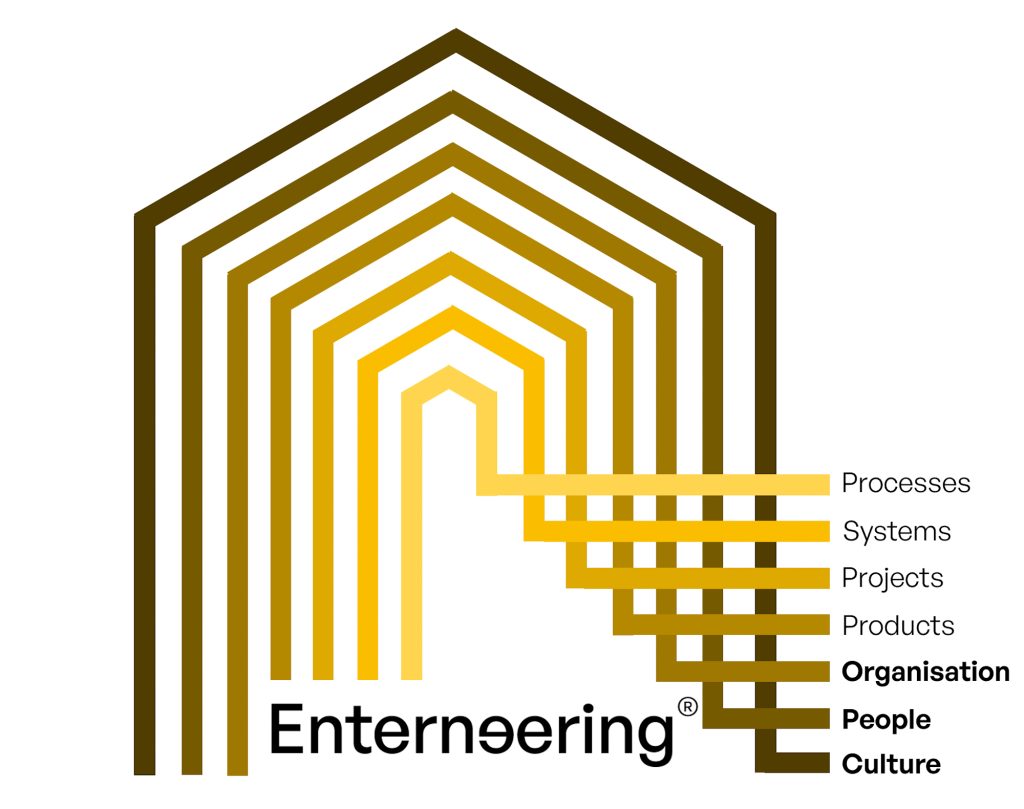
The approach is based on the simplified view of a company as a kind of building, which consists of different layers from the inside to the outside, each with different functions and characteristics. In this view, the layers of the company, seen from the inside-out, are divided into processes, systems, projects, products, organisation, people and culture. Enterneering® specifically addresses the three outer layers of Organisation, People and Culture. In other words, it is about the areas that exist more or less for the entire company and have an impact beyond individual areas, products or projects.
Enterneering® describes the knowledge and skills that are equally essential for all individuals with overall entrepreneurial responsibility, regardless of the products they sell, the sector or region in which they operate, and the customer or ownership structure they are associated with.
For entrepreneurs and intrapreneurs, it is not necessary to master all the Enterneering® elements in detail or execute them personally. Successful entrepreneurs and intrapreneurs know the most essential elements and can assess their importance to their company. Additionally, they can successfully delegate and control the execution of these elements.
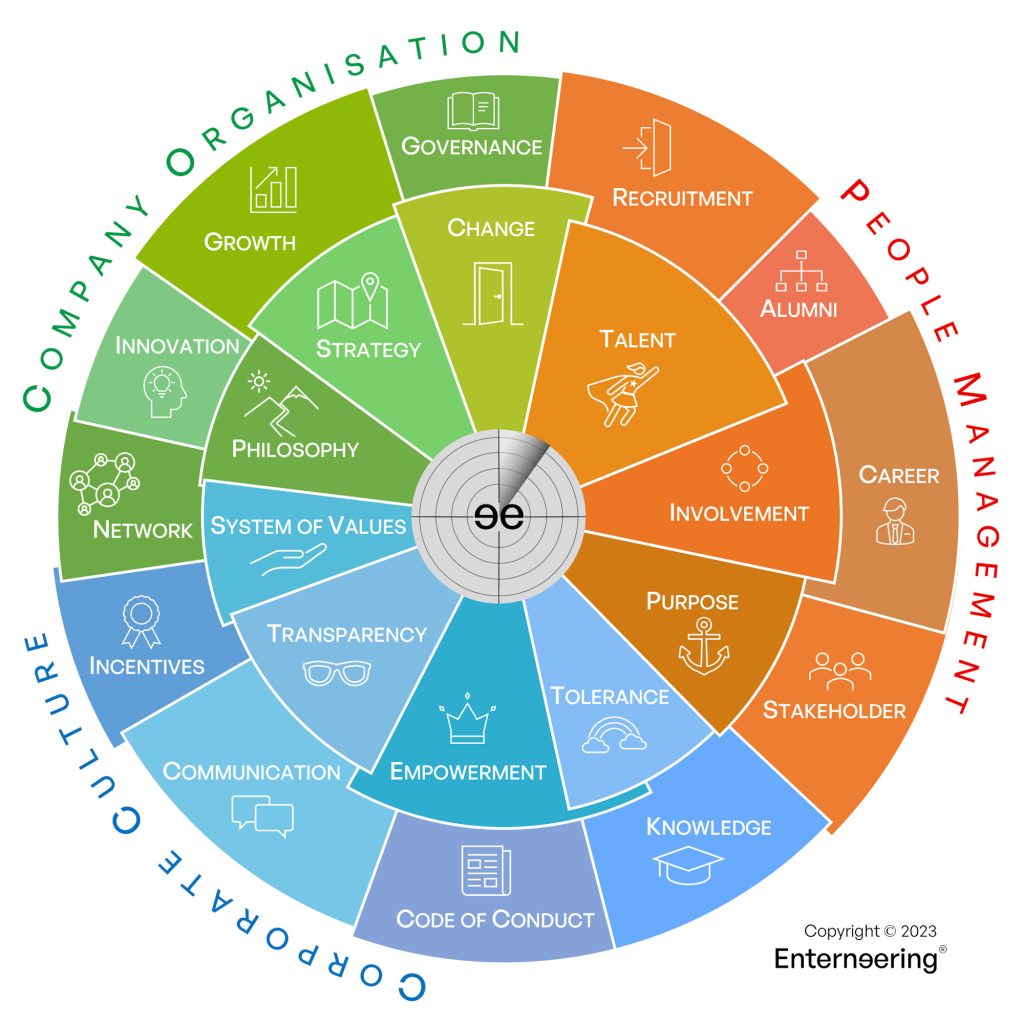
Significance of Enterneering® in the 21st
DIGITALISATION
Being in the digital age, we confront challenges like those faced two centuries ago when the Industrial Revolution swept the world. And just as then, opportunities and threats are emerging in the present and will do so in the near future. Basically, the same fundamental skills are required of individuals, societies and companies: the willingness and ability to change, as well as openness and tolerance towards new issues and different patterns of thinking and behaviour.
The digital age has led to new business models and products. New market participants are emerging in a very short time and customer needs are evolving rapidly and constantly. Developments that were limited by technical, physical or geographical boundaries in the industrial age now seem possible. This makes it possible for companies to achieve global reach in the shortest possible time, in terms of sales and procurement. In the same breath, customers worldwide are flooded with product messages and marketing messages. The number of suppliers is constantly increasing and becoming increasingly confusing. Companies can no longer stand out from the crowd with a solid and affordable product alone. They need the right messages and contemporary branding. In general, the requirements in the so-called intangible factors or the individual elements of Enterneering® have increased significantly.
The digital age has not only revolutionised the way companies work, but it has also changed and expanded the attack surface for threats. Cybersecurity has become a critical priority to sustain the competitive position of companies. Threats originate not only from outside but also often from within a company. Mishandling of data, misuse, and theft pose significant threats to almost all areas of the company. Weaknesses cannot be addressed by technical or technological measures alone. Corporate culture, people management and corporate governance play important roles in this area. Ultimately, global reach leads to global interaction and new forms of communication and work. In terms of Enterneering®, people and teams are to be organised and managed across cultures and countries.
Entrepreneurs who want to be successful in the digital age must be willing and able to embrace the latest technologies and use them to their advantage. They must be able to radically automate core processes and explore new organisational and structural approaches. Innovation, growth and change are key success factors and primary components of Enterneering®.
Digitalisation gives customers more influence and options than ever before. Successful companies have consistently aligned their organisation with customer focus. Companies need to find, retain and motivate the right talent to serve ever-changing and increasing customer demands. The Enterneering® elements of Stakeholder and People Management are crucial factors in achieving this objective.
CLIMATE CHANGE
Regional and global climatic changes affect companies in different ways. In most cases, they represent additional expenses and investments, usually without added value. For some companies, climatic changes threaten their very existence, while for others, they result in windfall profits or the potential for additional earnings. The change, as such, is equally relevant for all and experiences dangerous catalysis through its simultaneous effect with the other influences from digitalisation and demographic development. All these effects are occurring at the same time as the effects of digitalisation and demographics. Therefore, they increase the transformation pressure enormously. Enterneering® offers a valuable basis for tackling these challenges in a planned, structured and effective way.
DEMOGRAPHY
It has long been known and discussed in countless publications that the world is facing a structural demographic deficit. While the global population continues to grow, the proportion of working-age individuals, i.e. the number of available workers, is shrinking in many regions. This development of the so-called ageing is particularly strong in Europe, North America, East Asia, Southeast Asia, Australia and New Zealand. In South America, the effect is somewhat weaker. It is only in India, Pakistan and some African countries that the proportion of working-age individuals is rising. This development will inevitably lead to distortions in the international labour markets. In many countries, there has been an ongoing discussion about not only a shortage of skilled workers but also a widespread labour shortage. Fortunately, this development is taking place in the digital age, in which theoretically good conditions exist for recruiting and integrating workers and resources globally. The prerequisite for this to happen is that, on the one hand, the companies involved have the ability to do this and possess suitable structures, working environments and the necessary corporate culture. On the other hand, the markets with a growing labour force are willing and able to satisfy the labour needs of other countries. Companies that are seriously engaged in Enterneering® are working on the right elements with reference to these challenges.
NEW GENERATION
To assess the significance of Enterneering® in the context of the generational discussion, it is probably irrelevant whether the conclusions drawn in many discussions on this topic are based on empirical studies or on current opinions or moods. Empirical studies are probably not the basis for the assumption that Gen Y or Gen Z, for example, think and act so completely differently from the way people of the same age in the previous generations did. Nor do they answer the question of whether the parents of Gen Z individuals would not have acted similarly in their youth if they had lived in today's environment.
It is a fact that younger generations are increasingly self-confident, reflective, open-minded and meaning-oriented in their approach to the world of work. They actively and self-confidently seek knowledge, information and explanations about their working environment and tasks. They want to know what purpose they are serving and they want to make their own recognisable contribution to success. In addition, many younger people have grown up in times of information overload and prosperity, and without existential fears or awareness of social threats. Terms like humility, submission and frugality are not part of the common vocabulary. Instead, terms like work-life balance, new work and happiness hold greater importance. Companies, especially those operating in regions with competitive labour markets, should address this development consciously and reflectively. If a company wants to employ top talent, it must provide top working conditions, and these are no longer limited to a secure job and good compensation. Most of the elements in Enterneering® focus on creating these top conditions.
CONCLUSION
Successful Enterneering® also means making the company fit for the future. It serves to create the necessary competitive position for the company to be profitable and fit for the future in an environment of digitalisation and simultaneous climatic and demographic changes. It helps create the conditions to enable growth or scaling and to create sustainable brand value or company value. Successful Enterneering® makes companies more attractive to individuals and fosters a culture that inspires and motivates.

